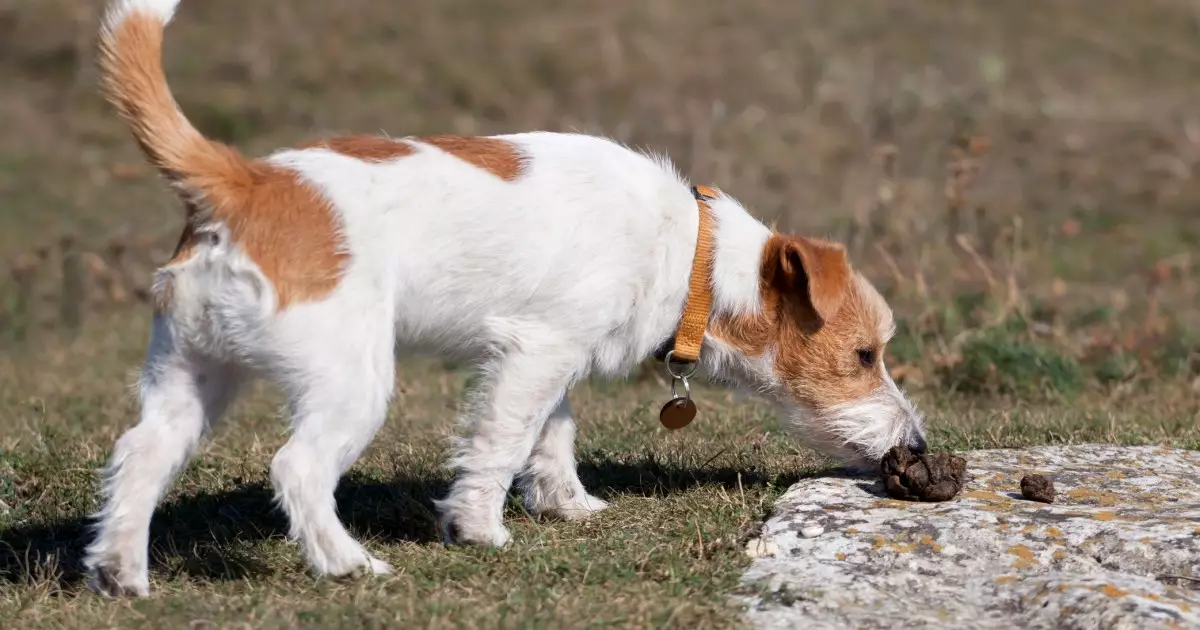Dogs, like all living beings, exhibit a variety of behaviors that can be perplexing to their human companions. One of the most confounding among these is coprophagia, or the act of consuming feces. While this behavior may provoke disgust and confusion, it is surprisingly common among canines, especially puppies and certain adult dogs. To grasp the reasons behind this behavior, it is essential to understand the underlying causes, evolutionary perspectives, and potential health issues that might contribute to this phenomenon.
From an evolutionary standpoint, coprophagia can be viewed as a survival instinct. In the wild, animals have evolved various behaviors meant to enhance their survival rates and reproductive success. For female dogs, particularly during the birthing and nurturing stages, the consumption of feces serves to keep their living quarters clean, thus reducing the likelihood of attracting predators. This instinct can persist even in domesticated dogs, particularly those with multiple canine companions within the same household. A submissive dog may eat the feces of more dominant dogs as a way to imitate behavior and maintain the group’s hygiene.
Additionally, for dogs, feces contain a wealth of information. Their highly developed sense of smell, facilitated by the vomeronasal organ, allows them to gather data about the dietary habits, health status, and even reproductive readiness of other animals through their droppings. Therefore, for dogs, eating feces can be likened to browsing a social media feed, gathering insights about their environment.
For puppies, the exploration of the world often involves mouth-based investigation. As they are developing and learning about their surroundings, they are likely to place various objects into their mouths, including feces. This behavior is largely driven by curiosity and is often a phase that most puppies outgrow. However, if the behavior continues into adulthood, it can become more problematic, necessitating intervention from their owners.
Moreover, a puppy may eat feces due to an instinctual association with their mother. Young dogs often imitate their mothers, who may chew and consume feces for cleaning purposes. Thus, puppies may not only find the texture familiar but might also instinctually feel they are replicating maternal behavior.
A more troubling reason for coprophagia may lie in its connection to health issues and nutritional deficiencies. Certain dogs may not fully digest their food, particularly if they are fed diets high in carbohydrates and low in essential enzymes. This incomplete digestion can lead to nutrient-deficient stool, driving the dog to consume its own or others’ feces in search of the nutrients it believes to be missing.
In some cases, underlying medical conditions, such as parasites or pancreatic problems, can hinder the proper absorption of nutrients from the diet, leading dogs to resort to coprophagia. Such behaviors can indicate a potential health risk; thus, consulting a veterinarian is essential for a careful assessment.
Furthermore, dogs that are overfed or provided low-quality food may also manifest this behavior. When a dog consumes too much food that is not nutritionally adequate, they may feel compelled to retrieve nutrients by eating feces.
Beyond instinct and health, emotional factors can also play a significant role in coprophagia. Dogs are highly social animals that thrive on interaction and engagement with their human companions. A lack of attention, stimulation, or emotional support can lead dogs to seek attention in any form — even if it comes from their behavior eliciting negative reactions from their owners.
In extreme cases, neglect may exacerbate the problem, where a starving dog may resort to consuming feces as a means of survival. This unfortunate situation warrants urgent intervention to address hunger and ensure the dog receives adequate nutrition.
While coprophagia can be a challenging behavior to address, it is not impossible. Dog owners should first consult with veterinarians to rule out any medical issues or dietary deficiencies. Additionally, owners can focus on creating a stimulating environment that offers plenty of physical exercise and mental engagement to prevent boredom.
Proper training—through positive reinforcement techniques—can also help modify such behaviors. Understanding the root causes and adjusting both diet and interaction levels will go a long way in dissuading dogs from this behavior. Patience and consistency coupled with professional guidance can yield positive outcomes in curbing coprophagia and enhancing the overall well-being of dogs.
Understanding why dogs eat poop is a multifaceted issue entwined with instinct, health, and emotion. By addressing these various aspects, pet owners can better support their furry friends in leading healthier and happier lives.


Leave a Reply